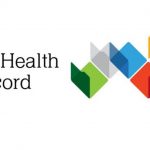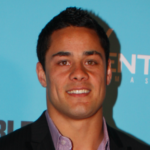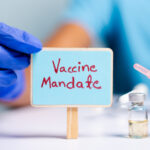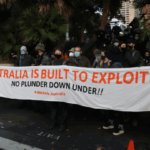Sure, Minns Promised a Drug Summit, But That Was When Seeking Election
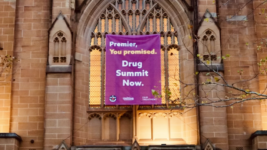
Guess what? NSW premier Chris Minns hasn’t been the progressive politician he’d attempted to portray he would be during the 2023 election campaign.
Indeed, it’s hard to believe, after a year of his leadership, that is the same guy, who back in 2019, suggested to his Labor colleagues that the party commit to legalising cannabis.
Yet, if one recalls those 2023 shots of Chris standing next to opponent then premier Dominic Perrott, the pair certainly did cut similar figures, so, perhaps, that should’ve been warning enough that NSW was simply being asked to decide between the same washing power in different packaging.
Sure, Minns talked big on drug law reform, as he had too, there are quite a few NSW Labor members, including serving ministers, who’d prioritised drug reform in campaigning, as they’re well aware that drug prohibition actually results in an escalation of the harms it’s meant to eradicate.
And while he was at it, the current premier did promise to hold a drug summit to discuss the key drug law reform issues of the day, which include drug decriminalisation, pill testing, legalising cannabis and the removal of drug detection dogs and strip searches from festival events.
The NSW drug summit is supposed to be the culmination of a process that began in 2018 with a spate of drug-related festival deaths that led to a coronial inquiry, along with the holding of the NSW ice inquiry, so that the experts, peers and politicians could discuss such reforms based on evidence.
But what we’ve got now is a premier, hiding in the corner with his tail between legs, as he attempts to avoid those he promised to at least consider the evidence with, as it seems that he may now consider a slight Liberal-inspired reform he quietly launched in February to be the end of the story.
With god on our side
The Uniting Church is one of the key drug law reform advocacy organisations in NSW, which is a fact that can surprise many the first time they’re confronted with it, and that provides some indication as to the sorts of mistruths and misconceptions that continue to pervade the issue of drug use.
In late 2018, Uniting launched its Fair Treatment campaign, which called for drug decriminalisation in NSW and the ACT.
Decriminalisation involves repealing the criminal offence of personal drug possession, so that those found with of a small quantity of drugs upon them are either fined, or counselled if it’s found to be necessary.
The ACT rolled out drug decriminalisation last October. And the personal possession of cannabis and the growing of up to two plants per household has been legal in the capital since 31 January 2020, while people have been able to utilise a fixed site pill testing service in Canberra since mid-2022.
Uniting’s Fair Treatment has over 70 partner organisations, which include the NSW Bar Association, The Doctors Union, Human Rights Watch, NSW Council for Civil Liberties, Women’s Legal Service NSW, Western Sydney University and the Anglican Church of Australia Public Affairs Commission.
So, on the evening prior to the NSW Budget, members of Uniting gathered in front of St Stephens Church, situated directly across from NSW Parliament House on Macquarie Street, to unfurl a large banner across the building that states, “Premier, you promised. Drug Summit Now.”
“We are taking this action today to appeal directly to premier Minns, on Budget eve, to set a date for the long-promised drug summit in NSW,” said Uniting NSW.ACT general manager external relations and advocacy Emma Maiden.
“It’s clear, even as we wait to hear when NSW will be given a date for a drug summit, that real, meaningful drug reform has broad and overwhelming political and community support and is urgently needed,” the drug law reformist told those gathered before the church on Monday.
When leaders had a set
Maiden further made clear that those supporting the holding of the drug summit are not some flash in the pan, but this is a concerted campaign made up of some of those who were involved in the original 1999 NSW Drug Summit, which led to real progressive reforms that saved lives.
“People with lived experience of drug use and dependency and their families have already waited a very long time for real reform and we are calling, once again, for premier Minns to urgently set a date,” the Uniting official added.
The 1999 summit was held by a NSW Labor then led by premier Bob Carr. To this day, the state remembers that, as a leader, Carr took a bold move, which was informed by the experts of the day, whom he listened to, was persuaded by and then led the state in making groundbreaking reforms.
Right now, Minns appears like a pre-election candidate, who spoke big, and could cut an impressive figure against that of Perrottet. But if he was asked to pose for a cover spread of the Good Weekend standing next to his predecessor Bob Carr, well, it would be clear who has actually walked their talk.
Carr, who continues to be an ardent reformist, recalled during a 2022 Sydney forum that he was all set to take the tough-on-crime drug war approach to the heroin epidemic in this city in the late 90s, when drug law reformist Dr Alex Wodak informed him about a concept known as harm reduction.
And following the 1999 NSW Drug Summit, the Uniting Medically Supervised Injecting Centre in Kings Cross opened its doors two years later. And it has since saved thousands of lives, while Carr holds the decision to run with it, as one of his top achievements in office.
A Liberal premier in Labor trappings
The Murdoch press approached Minns, after he’d take the reins in August, to quiz him about the decriminalisation policy the ACT Labor Greens were about to roll out, and he quickly retorted that he had “no mandate” for such reform and he then delayed the summit until sometime later this term.
But, as the 1999 summit bears testament, this state has a strong drug harm reduction contingent, and it kept pressing him for real reform, for a summit and for pill testing, just like in the ACT, right across New Zealand, and the April-opened permanent fixed pill testing site in Brisbane.
Following the delivery of the NSW Budget 2024/25, however, those same reformists are now aware that no allocation was made for anything that hints at a drug summit, and as Maiden pointed out on Tuesday, this could mean such a meeting may be delayed until as late as 2027, as first rumoured.
Yet, this may indicate that Minns, on having rolled out the Early Drug Diversion Initiative in February, which is a system whereby police can, at their discretion, issue up to two $400 fines per person over drug possession, prior to a third offence requiring arrest, considers this the drug reform issue over.
The clear reason why this may just be the case, is that Minns, a Liberal premier in Labor trappings, has implemented the drug law reform initiative – the EDDI – that opposition Liberal leader Mark Speakman put to the Perrott government when he was NSW attorney general back in 2022.
In fact, Speakman first proposed the EDDI, with a three fine limit, in late 2020, when he was chief lawmaker under then premier Berejiklian, in response to the ice inquiry and as an alternative to its key recommendation which was drug decriminalisation. But the EDDI was then rejected.
And when Perrottet was being pushed for a by-then long-awaited response to the ice inquiry in mid-2022, the current leader of the Liberals again came to the table with the EDDI, which was a watered-down version of his original and that’s the one now operating in NSW with a two fine limit.
So, while Uniting and other NSW drug law reformists continue to rail against the NSW premier for his promised summit, in his mind its likely already done and dusted, as he’s implemented a drug reform package first suggested by the Liberal opposition leader.
And while the Minns-Speakman reform initiative may not likely reflect any tangible changes on the ground to the challenges long faced by people who use drugs and their families, from the premier’s point of view, it probably won’t rock the boat enough to lose him any votes either way.




